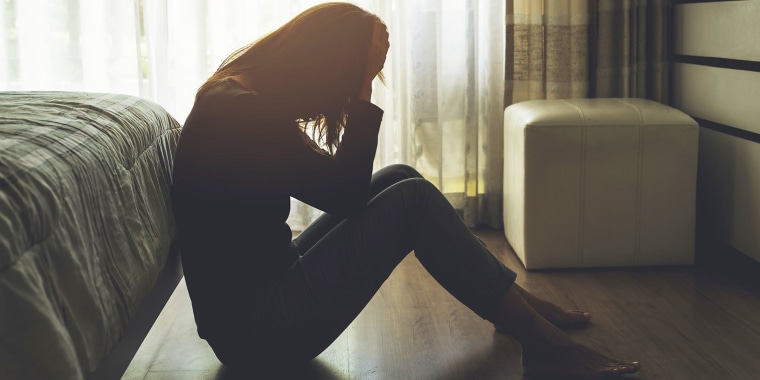With more than 40 million adults in the U.S. suffering from anxiety, many people are looking for ways to reduce stress.
Dr. Judson Brewer, an associate professor at Brown University and director of research and innovation at the school's Mindfulness Center, believes one of the best ways to fight anxiety is to combat it with curiosity.
"I think of it as a two-step process," Brewer told TODAY. "The first is we need to map out some of our anxiety habit loops. We tend to feed anxious thoughts without even knowing them."
Once you've determined what anxiety habits you may have — Brewer highlighted common ones like worrying or over-planning — it's important to "get curious" about what anxiety itself feels like.
Ask yourself: What sensations are you experiencing? Is it a tightness or a tension? Is it heat in your body? Is it a contracted quality?
Curiosity can be 'a superpower'
"A lot of people are so identified with anxiety that they feel like 'I am an anxious person,' but in fact awareness can help them see that anxiety is just made up of thoughts and body sensations and emotions, and that these thoughts and emotions come and go," he explained. "They don't have to be as identified with them, and awareness can help that simple process."
In this method, Brewer said curiosity can be "like a superpower" that can help flip the script on anxiety.
"As they get curious, the curiosity itself feels better than the anxiety," he said. "They can flip it from being anxious in that moment to being curious about what anxiety feels like, and that curiosity feels better. Our brains are always looking for what I call a BBO, a bigger, better offer, and we can offer curiosity as that bigger better offer anytime anxiety comes up."
Reduce the symptoms around anxiety
In Brewer's experience, this two-step method has been hugely helpful. He recounted the case of one patient who was so scared of car accidents that he wouldn't leave his house.
"He started using our anxiety program, and within a couple of months, I'm not kidding, he is now an Uber driver," Brewer said. "Actually, just last week, I was teaching a class at Brown, in Providence, and I walked out of the building while talking to some students, and he drove by, rolled down his windows, and was like 'Hey, Dr. Jud!' because he was on an Uber trip! It's great to see that."
Brewer also explained the curiosity and mindfulness practices can help reduce the symptoms around anxiety. In the case of the patient who was afraid to drive, one of his top anxiety habits had been stress-eating, but Brewer said that as he began mapping out his habits, the patient was able to eliminate his stress-eating and lose weight.
"It's a great example of how, if you truly map out how your mind works, you can work it in a way that's actually really helpful for you," Brewer explained. "This guy overcame his panic, lost a bunch of weight... all from mapping out his mind and bringing curiosity to his experience."
